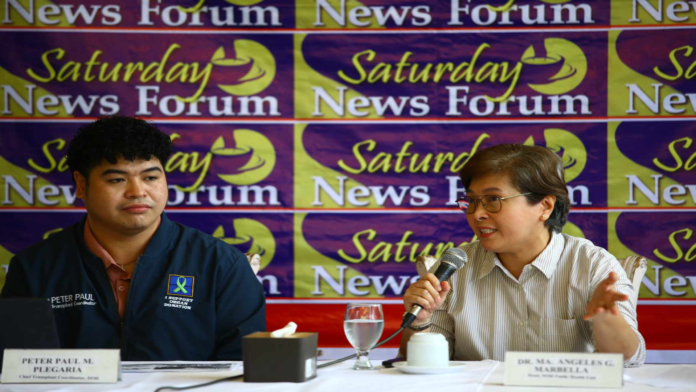The National Kidney and Transplant Institute (NKTI) is holding consultations with Congress and the Department of Health (DOH) regarding possible amendments to Republic Act (RA) 7170 or the Organ Donation Act and other related policies.
In a weekly news forum in Quezon City on Saturday, NKTI chief transplant coordinator Peter Paul Plegaria said talks are underway to introduce possible amendments to the organ donation law and policies to increase the number of potential donors.
Plegaria lamented the “very small” number of donors in the country despite digitalization efforts to intensify the organ donation campaign.
He also acknowledged that becoming a living donor is more of an “altruistic act,” considering that the sale of organs is currently prohibited.
“Talaga pong pinagbabawal po ang pagbili or any monetary or gift po na ibibigay natin sa donor po (It’s really prohibited to sell it or give any monetary gift to our donor),” Plegaria said.
“It’s more of we abide (by) the law. ‘Yung lang po kasi talaga ang ina-allow ng law natin (that is what our law just allows). And we (have) ongoing communication with the Congress po and the DOH about the amendment of RA 7170, our DOH Administrative Order po.”
Plegaria was referring to DOH administrative orders establishing policy guidelines for all organ donation and transplant activities in the country.
NKTI Public Health Unit head Dr. Maria Angeles Marbella noted an increase of 8,000 hemodialysis patients from 2023, higher than the estimated 2,000 to 3,000 reported in the past years.
Marbella said the latest figure is “roughly a 15-percent incidence of new cases of chronic kidney disease (patients) needing renal replacement therapy.”
“Ito po ‘yung mga nangangailangan ng (They are those who need to undergo) hemodialysis, peritoneal dialysis, and eventually, kidney transplantation,” she said.
More kidney transplant centers
Citing the NKTI’s latest estimates, Plegaria said one Filipino develops chronic kidney failure every hour or about 120 Filipinos per million population every year.
Plegaria said chronic kidney disease is one of the leading causes of illness and death in the Philippines, with latest reports showing that about 2.3 million Filipinos have the disease.
He lamented the limited access to kidney transplant centers, amid the growing number of Filipinos with chronic kidney failure.
To date, the country only has 38 transplant centers, 11 of which are government hospitals and the remaining 27 are private hospitals, Plegaria said.
He said the NKTI is capacitating DOH-run hospitals nationwide to become kidney transplant centers.
“Mayroon pa rin po kasi tayong mga (We still have) regions po sa (in the) Philippines na wala pa pong (that have no) transplant centers,” he said, citing Cagayan Valley, Mimaropa, Zamboanga Peninsula, Soccsksargen, Caraga, and the Bangsamoro Autonomous Region in Muslim Mindanao.
Organ donor card
Plegaria said as part of efforts to step up the organ donation advocacy, an Organ Donor Card is being distributed to encourage more Filipinos to donate their healthy kidney.
He said about 367 potential donors have so far registered since the NKTI started rolling out the Organ Donor Card last year.
“Napakababa pa po ng rate namin. So, tulungan niyo po kami na mas maparami pa po ang mag-register sa Organ Donor Card (The rate remains very low, so help us increase the number of those who will register for an Organ Donor Card),” he said. (PNA)


